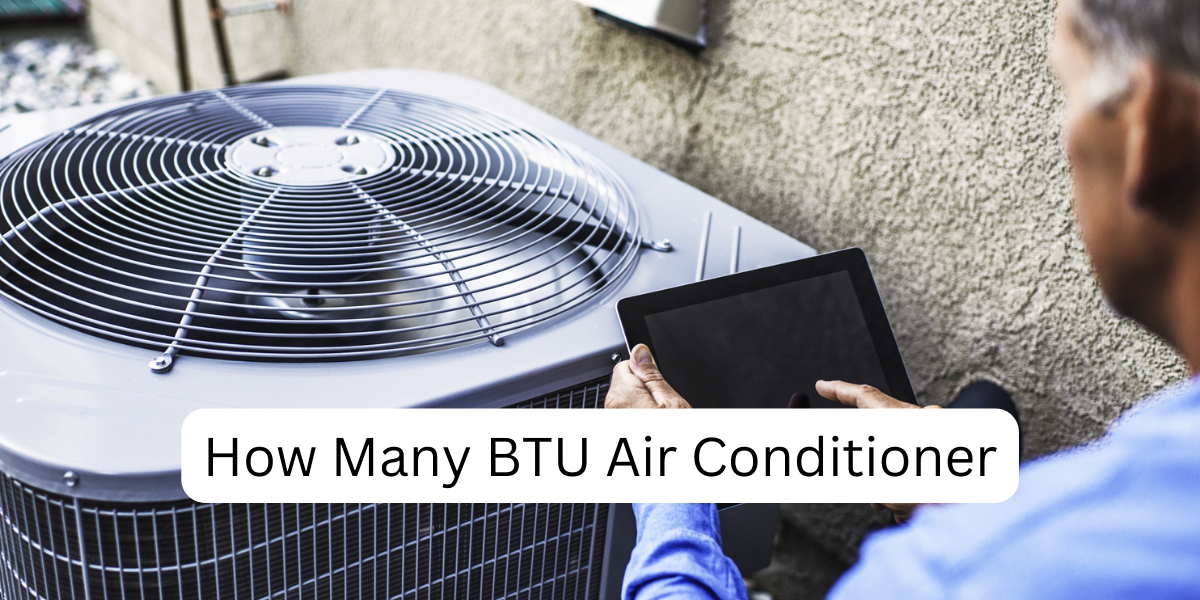How Many BTU Air Conditioner

Cooling down your home on a hot summer day is a priority for many homeowners. But finding the right air conditioner to fit your needs can be difficult. This article will provide an overview of how to select the best air conditioner by understanding BTU ratings, energy efficiency and the size of the space you are cooling. Read on to find out how you can maximize comfort and save money on energy bills!
What is a BTU?
A BTU, or British Thermal Unit, is a unit of measurement for heat energy. One BTU is the amount of energy needed to raise the temperature of one pound of water by one degree Fahrenheit. BTUs are often used to measure the power of heating and cooling systems, such as air conditioners.
Factors to Consider When Choosing the Right Air Conditioner
There are a few factors you should consider when choosing the right air conditioner for your home. The first is the size of the unit. You’ll need to know the square footage of the room or rooms you want to cool in order to select the proper BTU rating. The next factor is climate. If you live in a hot, humid climate, you’ll need a unit with a higher BTU rating than if you live in a milder climate.
Another factor to consider is the type of air conditioner. Room air conditioners are less expensive than central units, but they don’t cool as evenly or effectively. Finally, make sure to read reviews before purchasing an air conditioner. Compare features and prices to find the best unit for your needs.
How Many BTUs Do You Need?
The number of BTUs (British Thermal Units) you need to cool a room depends on the size of the room, the amount of sunlight and heat coming in, the number and type of people using the room, and other factors.
A rule of thumb is that you need about 20 BTUs per square foot of living space. So, if you have a 200-square-foot room, you would need a 4,000-BTU air conditioner. But this is just a starting point. Depending on your specific situation, you may need more or fewer BTUs.
There are a few ways to determine exactly how many BTUs you need. One is to use an online calculator like this one from Energy Star. Another is to buy an air conditioner that’s too big and then return it if it doesn’t work out (most stores have return policies for this). Or, you can ask a salesperson at a store that sells air conditioners for help.
Once you know how many BTUs you need, be sure to select an air conditioner with that rating or higher. A unit that’s too small won’t be able to cool your room properly, and one that’s too big will use more energy than necessary and may not remove enough humidity from the air.

Note:
The British Thermal Unit, or BTU, is a unit of measurement that is used to determine the cooling capacity of air conditioners. One BTU is equivalent to the amount of heat required to raise one pound of water by one degree Fahrenheit. In order to find the appropriate sized air conditioner for your home, you will need to know how many BTUs are required to cool the space.
There are a number of factors that will affect the number of BTUs required to cool a space, such as the size of the room, the number of people in the room, the level of insulation, and the climate. The first step is to calculate the square footage of the room. Once you have this figure, you can consult a sizing chart that will take into account all of the other factors mentioned above.
If you’re still not sure how many BTUs you need, there are a number of online calculators that can help. Or, you can always contact a professional AC repair service like Fast Repair Care at fastrepaircare.ae for assistance.
Another common challenge is addressing errors in Shabd Roop. One of the most frequent errors is using the wrong form for a particular case or gender. To avoid this, learners need to have a good understanding of the rules and patterns that govern Shabd Roop. Practice exercises that focus on identifying and correcting errors can also be helpful.
Different Types of Air Conditioners and Their BTU Requirements
There are many types of air conditioners on the market today, and each has its own set of BTU requirements. Here is a look at some of the most common types of air conditioners and their BTU requirements:
- Window air conditioners: These air conditioners are designed to be installed in a window and typically have a capacity of 5,000 to 8,000 BTUs.
- Portable air conditioners: These air conditioners are designed to be portable and can be moved from room to room. They typically have a capacity of 8,000 to 14,000 BTUs.
- Central air conditioners: These air conditioners are designed to cool an entire home or office and typically have a capacity of 18,000 to 60,000 BTUs.
Tips for Saving Money on Air Conditioning Costs
- Set your thermostat as high as comfortably possible in the summer, and as low as comfortably possible in the winter.
- Use ceiling fans to circulate air throughout your home.
- Place fans near windows to help push hot air out and cool air in during the summer.
- Seal drafts around doors and windows to keep cool air inside during the summer and warm air inside during the winter.
- Install energy-efficient window treatments to help keep your home cooler in the summer and warmer in the winter.
- Use a whole-house fan to circulate air throughout your home in the evening when it’s cooler outside than it is inside. More catagory post visit here.
- Insulate your attic to help keep your home cooler in the summer and warmer in the winter.
computer repair near me
Apple MacBook Repair Service
Laptop Hardware Repairs




